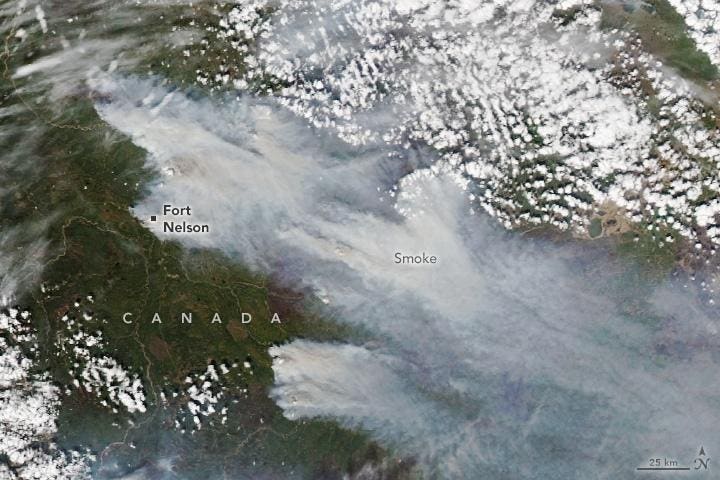Wildfire season in Canada is in full swing, with the greatest amount of activity typically falling within the months of May to September. Large and intense wildfires have already been reported in British Columbia and western Canada, with the town of Fort Nelson facing a major blaze that has spread to 10,000 hectares. This early start to the fire season has led to degraded air quality in five Canadian provinces as well as the northern U.S.
The region is also experiencing persistent drought, leading to holdover blazes that have been smoldering beneath the snow all winter before reemerging. These fires are a result of a multi-year drought classified as extreme by the North American Drought Monitor. The 2023 season was noted as the most destructive ever recorded, with over 6,132 fires burning 16.5 million hectares of land, exceeding the previous records.
The impact of climate change on wildfire activity in Canada is undeniable, with temperatures steadily increasing in recent decades. Prime Minister Justin Trudeau acknowledges the reality of wildfire season in Canada and the need to address the effects of climate change. A study by the World Weather Attribution group found that climate change made the severity of Quebec’s 2023 fire season around 50% more intense, and such seasons are at least seven times more likely to occur.
Data shows that large fires in Canada have been growing in size over the past fifty years, with fire season starting earlier and ending later. As the El Niño pattern shifts to La Niña, experts warn of drier-than-normal conditions in British Columbia and concerns about drought in Alberta, heightening wildfire risks. The combination of warming temperatures, decreasing humidity, and low precipitation create a dangerous environment for wildfires to thrive.
Despite hopes for a shifting weather pattern to bring some relief, the outlook for the 2024 wildfire season is ominous. The increased frequency and intensity of wildfires in Canada are a clear indication of the impact of climate change. Preparation, awareness, and coordinated efforts are necessary to mitigate the risks posed by wildfires in Canada and around the world. It is essential to address both natural variability and anthropogenic impacts in order to effectively combat the growing threat of wildfires.













